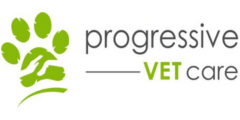Desexing
TO NEUTER OR NOT TO NEUTER - THAT IS THE QUESTION
What are the benefits of desexing my pet?
Desexing is a common surgery performed at veterinary clinics every day. In females, both the ovaries and uterus are removed (spey) and in males, both testicles are removed therefore making it impossible for a desexed animal to breed. Desexing is an important procedure in our pet community. Not only does it prevent unwanted pregnancies and health consequences associated with these but there are other medical reasons to eliminate hormonal effects on the bodies of our domestic pets.
Entire females (a female dog that has not been desexed) are at a much greater risk of developing mammary cancers (breast cancer) if not desexed within the first 2 years of life. If desexed at 6 months, before their first heat, they have a 0.005% chance of developing breast cancer. With each heat, their risk doubles. Mammary cancer can be an aggressive disease that has the potential to shorten a pet’s life. It is therefore preferred to prevent these serious illnesses with early desexing.
Another serious illness we see as a result of females not being desexed is pyometra (infected uterus). This is a life threating condition whereby the uterus fills with pus and if left untreated, can be painful and even fatal. Treatment of pyometra is surgical removal of the infected uterus (performing a spey) but this surgery comes with greater risks as the animal is often older and quite sick at the time compared to a young and healthy puppy.
One big advatange of having a desexed female dog, is the lack of being ‘on heat’. When female dogs come into heat (also known as ‘in season’), they drop blood from their vulva for 1-3 weeks and attract unwanted attention from entire males (male dogs that have not been desexed). It can also lead to the female dog wanting to escape from your property even if they have never done this before, as they are searching for a mate. Female cats also display signs when they are ‘in heat’. They display ‘friendly’ behaviour often presenting their rear ends to owners, constantly vocalising and may try to escape the home, especially at night.
There are many additional benefits for castrating male pets too. One of the most common and important reasons is to reduce aggressive behaviour. Male dogs can be aggressive towards other pets or towards people, and this may not be seen until your pet reaches sexual maturity. If your dog is older, and already becoming aggressive, castration may help to improve this. In male cats, aggression is usually seen as fighting, especially with other cats in the neighbourhood at night.
Displaying territorial behaviour can be a problem for both male cats and dogs. This can present as frequently escaping from home to wander the neighbourhood leading to accidental injuries such as being hit by cars or abscesses from bites. Other advantages of desexing include reducing behaviours associated with ‘marking territory’ behaviour such as lifting their legs (dogs) or spraying (cats) to urinate on inappropriate things (like inside the home) as well as less dominating tendencies.
Entire males are also at risk of cancers including testicular and prostatic cancer.
What are the disadvantages of desexing my pet?
Male dogs that are desexed young will have less effects of testosterone on their physical development. This means they may be smaller in stature and have less muscle development. This does not mean they will be less healthy or be at risk of health problems. We also know that desexing can drop the metabolic rate of our pets which means they burn energy slower so require less food. Desexing itself does not cause obesity. If you have any concerns about your pets weight, please speak to one of our staff who can help you get your pet onto the correct diet for them.
What age should I desex my pet?
We recommend desexing your pet at 6 months of age. For breeding animals, we recommend desexing as soon as they are no longer used for breeding purposes.
If you have any further questions please call Progressive Vet Care on 9569 5353

